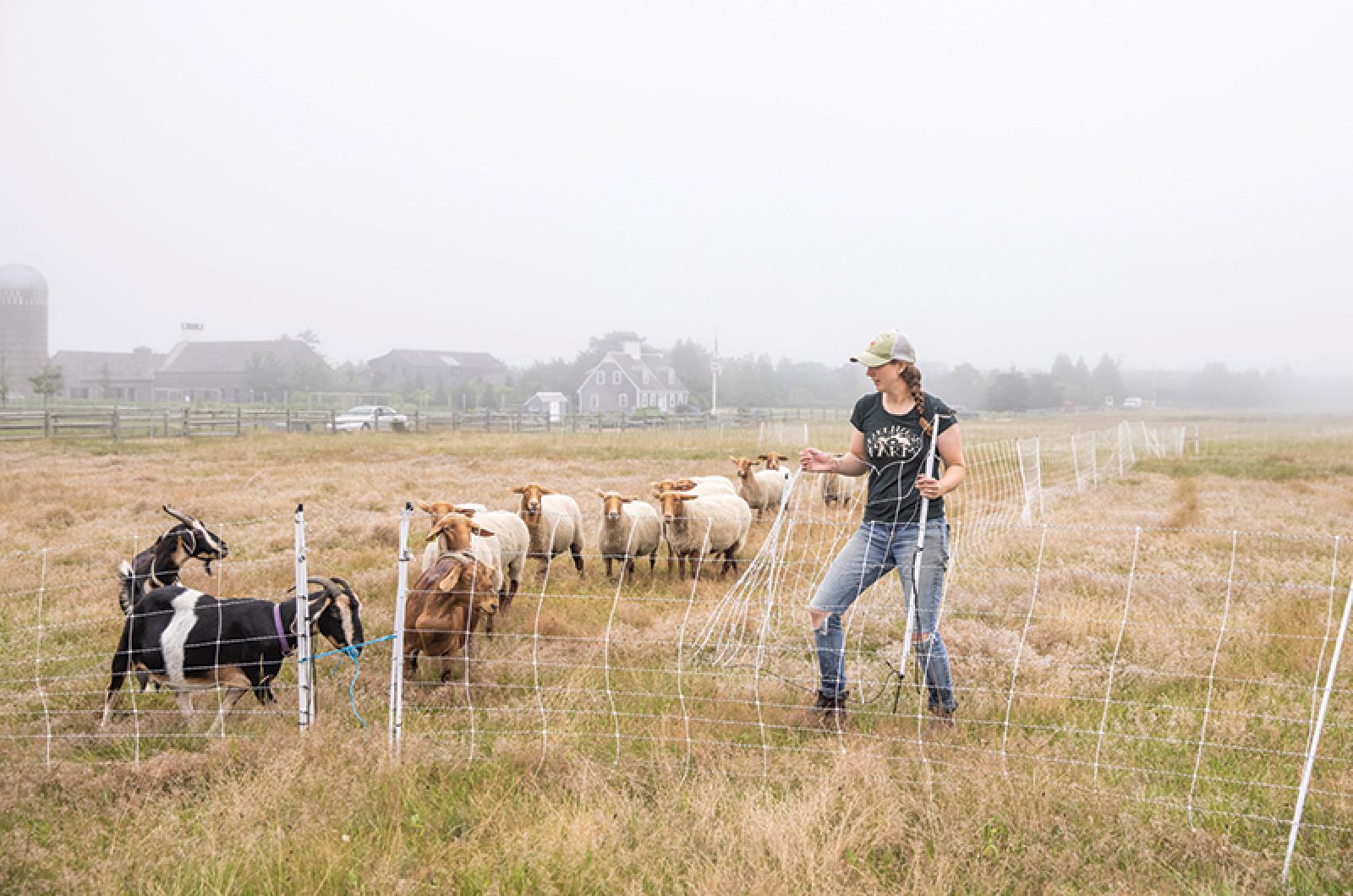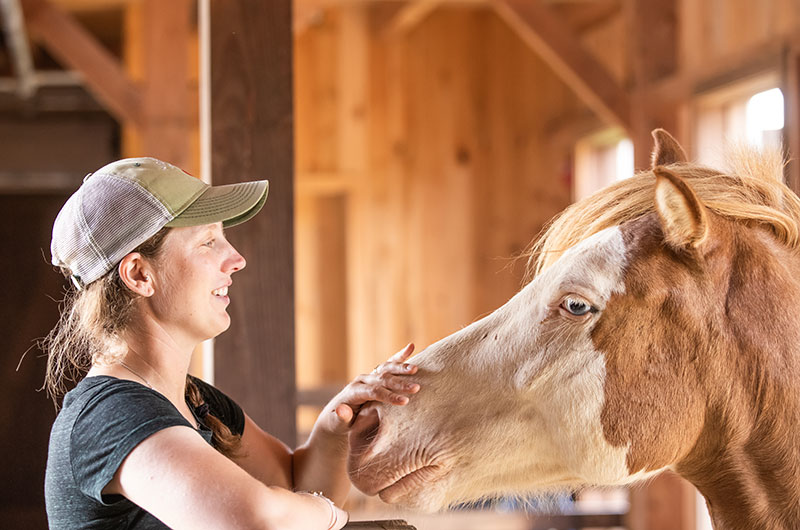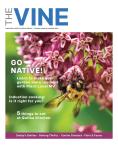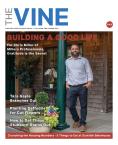As a kid growing up on Cape Cod, Julie Scott noticed there weren’t a lot of farms, and even fewer farm animals. Intrigued by farming, she went to work at the age of 12 at an animal feed store in Harwich. By the end of high school, she knew what she wanted her life’s work to be. She went to a small agricultural and environmental school, Sterling College in northern Vermont, to get her degree in sustainable agriculture. That’s where she fell in love with working with draft animals – horses and oxen in particular.
Now well-known on the Vineyard for her skill in handling livestock, Julie is also a dynamo organizer who gets things done. Hence her new job title: executive director of Slough Farm in Edgartown.
Q. How did you even hear about Sterling College in the first place?
A. I was at a Barnstable High School college fair. All of a sudden I saw this picture of a bearded guy, covered in snow, standing next to a giant horse. I stopped, thinking what is this place? I talked to them and they said the school was nice and small and super community-oriented and had a working farm! I knew it was where I wanted to be. I signed on the bottom line, took out loans I didn’t really understand, made it happen and never regretted it.
Q. How did you wind up here?
A. In college, my senior applied research project was to create a plan for an educational farm in Dennis for the Farm Bureau. So I visited a handful of educational farms in New England and New York, including the FARM Institute here. But to graduate, I also had to learn about vegetables, so I worked a semester at a farm in Mendocino, California. And that’s where I met my husband 13 years ago.
When I decided to come back east, I applied to work at the farms I had visited. And it was between Shelburne Farms in Vermont and the FARM Institute on the Vineyard. I accepted the Farm Institute because my husband was a surfer and I knew that he wouldn’t come with me if I chose Vermont!
Q. Smart move! What did your husband do here?
A. He did some work on boats — painting, waxing, hauling. But he also learned a lot spending time with me on the farm and he ended up getting a job at The Grey Barn. He was there for five years. Now he’s field manager at Slough Farm.
Q. How did you end up at Slough Farm?
A. I worked at the FARM Institute for 7 years before I left. My husband and I were also working for the Martha's Vineyard Land Bank in exchange for housing.
One day, I got cold-called from a woman (who wound up being our founder). She said, “I’m interested in buying a farm on Martha’s Vineyard and Sam Feldman says you are who I should talk to.” (Sam is one of the founders of the FARM Institute and we just always stayed in touch.)
Q. What was your first job with them?
A. My husband and I came on as consultants in the fall of 2015. The founders did not have a deep connection to the Island or to agriculture. So we were involved in every step, from designing the barn to forming the mission to talking about how we could benefit the community and organizations we’d want to partner with.
Q. What was most important to you in this process?
A. I am adamant about working together and not in competition. Our founder did not know much about other agricultural non-profits on the Island, so we spent a lot of time talking about what Island Grown Initiative (IGI) did, what the FARM Institute did, what the Agricultural Society did; and really spent time working our mission into something that complemented and didn’t duplicate.
Q. And the mission became?
A. We decided pretty early on that the whole purpose would be to grow and raise food to go to those who were in need on the Island. And it’s just incredible that that’s what happened. We donate everything that we produce! So we raise pigs, cows, sheep, chickens for both meat and eggs, turkeys, a handful of ducks and goats and we have a sizeable vegetable garden.
Q. But you do other things as well?
A. Yes! We use the farm as the pivot point for the rest of our mission, which is to support fellow farmers and artists, cultivate good health and wellness and act as a community connector. Our mission is intentionally broad because we want to do a lot of things. Slough Farm is a 501C3. There are no owners. We are an incorporated, non-profit organization. We have a team of founders who want to be anonymous supporters. Their philanthropic trust supports our operations and we have an endowment to ensure future success of Slough Farm.
Q. How did the pandemic impact your work?
A. Last summer we were nervous that our farmers weren’t going to have the outlets to sell their products. We were seeing that our restaurants were shut down and people who worked in the food industry were out of work. And we saw that people were having trouble accessing food. So we created the Slough Farm Suppers Program. We funded local chefs, caterers and restaurants to purchase food from farmers. We paid them to produce meals with local ingredients in their kitchens, and all these meals were distributed to our food equity partners — the food pantry, the Council on Aging, the Martha’s Vineyard Family Center. It all went to feed people which was amazing! This past fall, though we still fund the program and are partners in it, we asked IGI to handle the distribution of the items, because they were already doing that for their other food equity network. Now they basically run the suppers program for us. Kayte Morris of the Food Pantry just told me they have served 15,000 meals since last October.
Q. And if Islanders need food, how can they access this?
A. They can contact Kayte at Island Grown Initiative. She can determine the best of many ways to assist them.
Q. Recently, you took on more responsibility, joining forces with The Trustees and the FARM Institute to rejuvenate Katama Farm. How is that working?
A. We filed an expression of interest in the farming and education lease of the Katama Farm in partnership with the Trustees, The Grey Barn and Morning Glory Farm, and it was accepted. It seemed we could all work together versus independently. It’s a big undertaking however you look at it. But we are all committed to the same things.
Q. Why do it?
A. Slough Farm will never be open to the public in the way that Katama Farm is. Our landowner association is rightfully private and we can’t handle large amounts of traffic. I think partnering with an educational farm that is open to the public and being able to share our farming methods with the community is really special. I also think we have much to learn from each other.
Q. You must love what you do!
A. I feel that I get to use my powers for good. As a non-profit, a lot of times the hurdle is money. Here we are funded in a way that we focus on making an impact versus having to fundraise. It’s great to be able to think about how we can help, how we can better partner with our community. It’s almost unheard of for a non-profit to have that ability.
Q. What are your biggest challenges?
A. My biggest challenge is always, always, always housing. We have rented a house for our staff. It’s way too much money, but I didn’t want housing to be a reason that we can’t get the staff we need. Overworking is something associated with both farming and the nonprofit world, so we want to give people at least a place to land at the end of a hard day. The other thing that’s hard is that the opportunities are just so vast for our partnership. You never feel done because we have the ability to do so many things.
Q. Yet, you must feel very lucky.
A. Every single day I wake up and don’t understand how I got here! I just step out the door at Herring Creek Farm and on this gorgeous site, surrounded by the buildings, the animals and the landscaping and the most wonderful coworkers and people and yeah, we feel very lucky.
Paula Lyons is a former television consumer journalist living in Vineyard Haven.












Comments